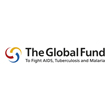South Africa Seeks to End Epidemics among Women and Girls
PIETERMARITZBURG, South Africa - June 24 2016 – South Africa's deputy president Cyril Ramaphosa today launched a national campaign to transform the health of young women and girls in the country.
The new program led by the government and supported by global health partners will go beyond biomedical approaches that seek to prevent young women and girls from HIV and treat those infected with the virus. It will encompass long-term measures that address structural barriers, which predispose young women and girls to diseases.
Despite the great progress made against HIV, tuberculosis and malaria in the last decade, gender inequalities continue to increase women's and girls' vulnerability to the diseases. In South Africa in particular, HIV is a significant threat for young women and girls. About 2,500 girls and young women of 15-24 are infected with the virus every week. Young women and girls in that age group are four times likely to become infected with HIV than males of the same group.
"This is a pivotal moment in reaching our National Development Plan goal of a generation free of HIV by 2030, which illustrates South Africa's commitment to achieving the global target of ending AIDS by 2030," South Africa's Health Minister Aaron Motsoaledi said. "We wish to thank the Global Fund, PEPFAR and the German Government for their financial contribution to our national campaign which will assist us to accelerate the implementation of specific programs that target young people in selected districts over the next three years."
In the new initiative, South Africa will work with the Global Fund, the United States President's Emergency Plan for AIDS Relief (PEPFAR) and the German Development Cooperation to reduce HIV infections among young women and girls, cut down the number of teen pregnancies and reduce gender-based violence. Other objectives of the program will include keeping girls in school and increasing economic opportunities for young women.
"The focus of the national campaign aligns with the DREAMS program and most importantly, with South Africa's own priorities and programs for this highly vulnerable group", said Patrick Gaspard, U.S. ambassador to South Africa. " I hope, as I pledge the continued support of the U.S. government for the newly-launched national campaign, that all young girls will also pledge to stand up and dare to be counted among those who are Determined, Resilient, Empowered, AIDS-free, Mentored and Safe. And that all of you boys and young men, parents, teachers and all community members, will stand up and dare to be counted as those who stand side-by-side with girls and young women in a powerful commitment to achieve an AIDS-free generation."
"We need to address the underlying human and social factors of HIV infections," said Walter J. Lindner, German ambassador to South Africa. "Germany supports the campaign of the South African government for young women and girls with technical and financial assistance. Our common goal is to ensure a healthy future for young women and girls in South Africa."
"The Global Fund is increasing its investments to address the long-term structural challenges that continue to expose young women and girls to HIV," said Carole Presern, Global Fund's Head of Office of Board Affairs. "Girls and young women have long been the face of the HIV epidemic in the hardest hit countries. To end HIV as an epidemic, we need to focus strongly on programs that prevent them from becoming infected in the first place, and that enable them to live healthy, productive lives."
The Global Fund is a 21st-century partnership designed to accelerate the end of AIDS, tuberculosis and malaria as epidemics. As a partnership between governments, civil society, the private sector and people affected by the diseases, the Global Fund mobilizes and invests nearly US$4 billion a year to support programs run by local experts in more than 100 countries. By challenging barriers and embracing innovative approaches, we are working together to better serve people affected by the diseases.



